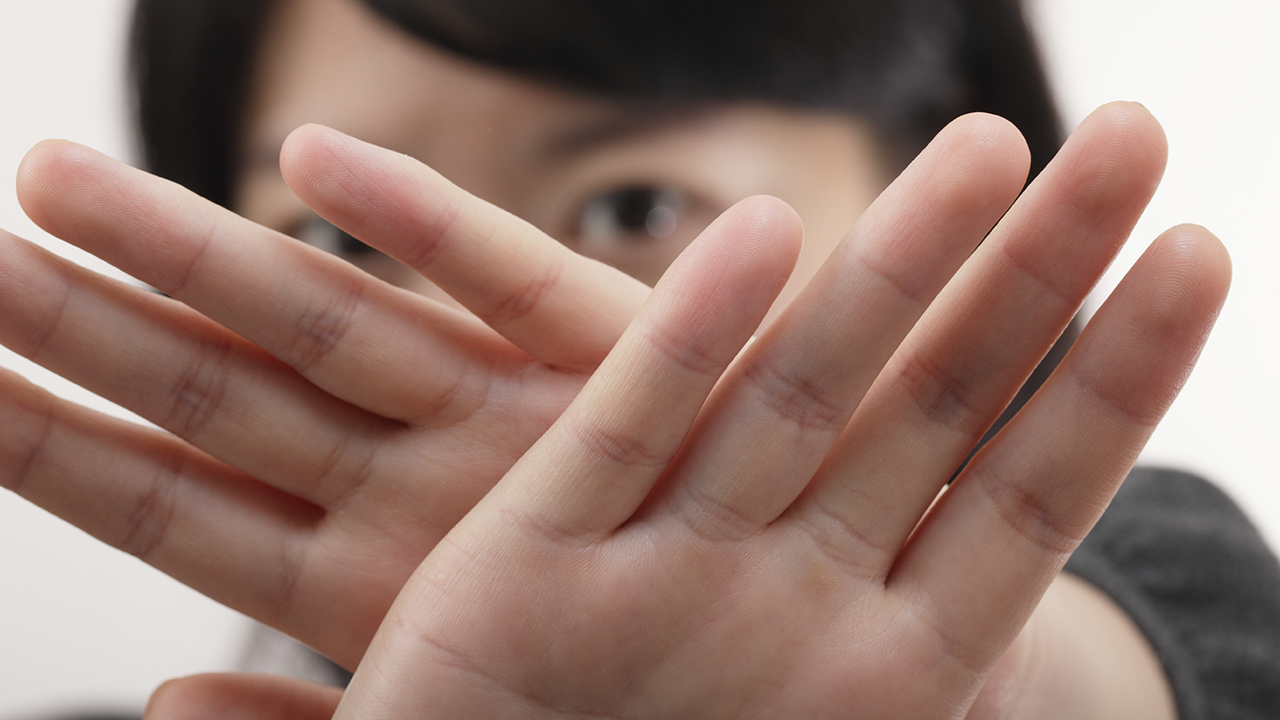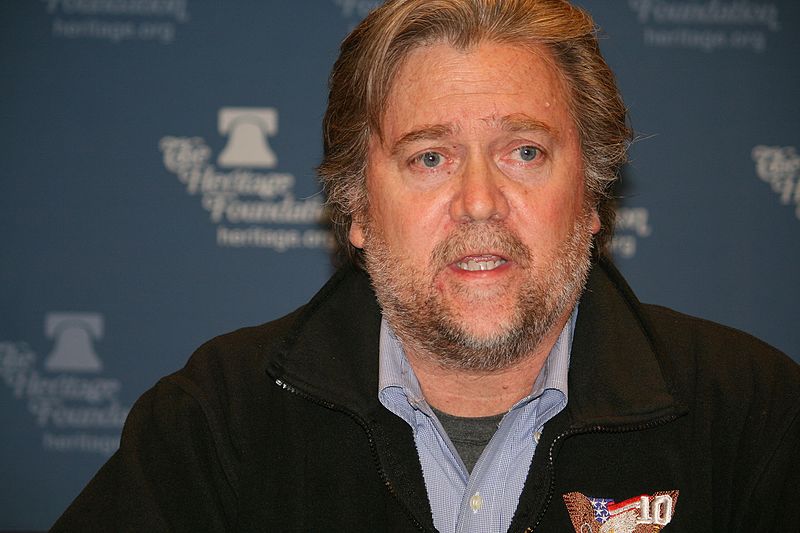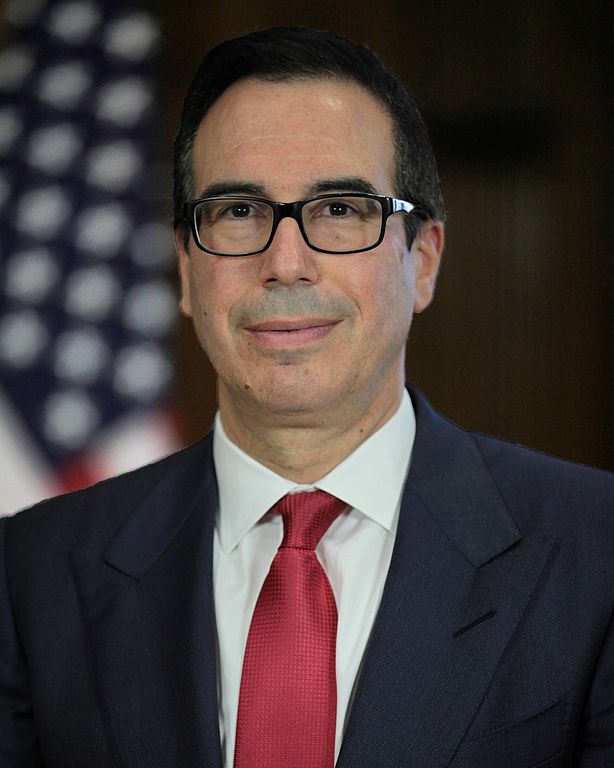Abortion rights, women of color, and LGBTQI+ people are under attack. Pledge to join us in fighting for gender justice.
May Day: Thoughts on a Political Emergency
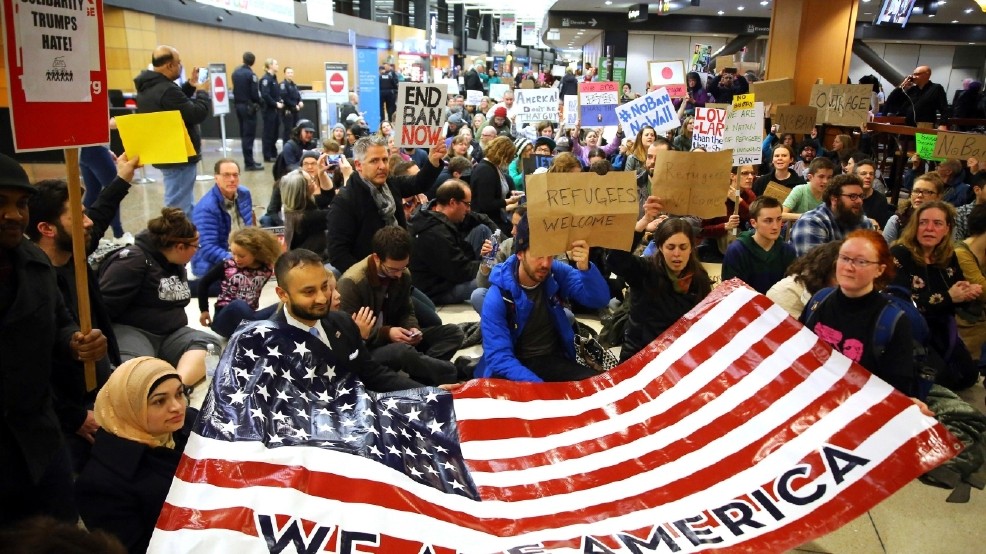
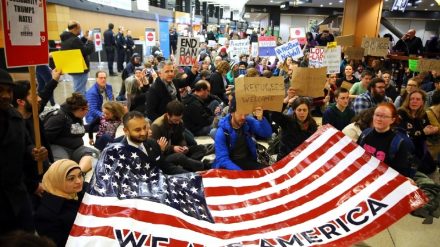 “Are you going this weekend? I haven’t made up my mind. I’m getting tired of marching. There’s a march every week, and even more this coming week because of May Day…”
“Are you going this weekend? I haven’t made up my mind. I’m getting tired of marching. There’s a march every week, and even more this coming week because of May Day…”
Last week, I was sitting on a train next to a friend. I’m tired, though not yet tired of marching. I reflexively repeated that marching isn’t the only way to resist, something I’ve found myself saying a lot lately.
I say “reflexively repeated” because admittedly, my mind started wandering upon hearing the words “May Day.” Instantly, my thoughts were overtaken by two colliding images: of reading with my toddler son, and of a crackling radio shaking with the sound of a distress call.
Megaphones Marching.
Movimiento Music.
Hip hip hooray!
It must be May Day!
For me, reading (and rereading, and rereading…) books to my son is a pretty routine event. But every so often, when we get to this page of one of our favorite books, I start thinking about the bloody history contained in this invitingly illustrated page — the bloody history that made it even possible for us to have ordinary experiences like snuggling together with a book.
It took a long, often violent history of struggle for the most basic human needs and dignity for us to have simple moments like these. Our family’s personal trials and triumphs aside, millions of people before us organized, struggled, fought, and died to make this life possible. Early labor activists were brutalized for demanding “eight hours for work, eight hours for rest, and eight hours for what we will.” Women either bore huge, hard-to-manage families, or risked injury and death to have unsafe abortions out of personal and economic necessity. It took their sacrifices, and the determined efforts of organizers, doctors, and lawyers, to get safe, legal access to abortion and birth control, as well as the legal right to have a say over whether and when to have sex once married. Without the organizing and political savvy of generations of abolitionists, suffragists, and civil rights activists — who endured war, beatings, force feedings, fire hoses, and more — I wouldn’t be free at all, much less free to attend good, diverse schools where I learned what I need to know to provide for my (legally multiracial) family by doing meaningful, fairly paid work, or to have the right and the ability to vote for elected officials who can protect the many freedoms earlier activists sacrificed for.
And that’s where the distress call hits me: in the realization that we haven’t yet won these basic freedoms for everyone, and that some people are trying to ensure we never do.
It scares me how easily so many of us take our rights and freedoms for granted. When most of us talk about “fighting for our rights,” that “fight” is usually metaphorical, referring to what we do when we vote, negotiate, organize, campaign, speak, or march. But generations ago — and for many immigrants, low-income people, as well as for millions of people around the world today— that fight was and is quite literally a physical, occasionally deadly conflict. So it’s not just upsetting, but dangerous that there are people in our country actively dismantling all of the legal, peaceful means by which we govern our bodies and our families, as well as our workplaces, communities, and country.
For decades now, powerful people — like public officials, policymakers, and corporate lobbyists, among others — have been making it harder to vote. They’re making it harder to organize or to get paid a living wage, while making it easier to incarcerate people — both those who resorted to illegitimate means to meet their needs and those who were just in the wrong place at the wrong time. They’re making it harder to control the size of our families. They’re making it harder to get help caring for our families and harder to educate our families. They’re making it harder to legally keep families together for immigrants escaping violence or dire economic situations. They’re making it harder to keep our families healthy and harder to stay safe in our homes or anywhere else. They’re making it harder to get our day in court if we’re mistreated at work or as consumers or to get a fair trial if we’re accused of a crime. They’re making it harder to ensure we can travel on safe roads, rails, and bridges, or to drink clean water, or to breathe clean air, or to otherwise protect the natural resources we depend on to live.
Despite our mass media’s tendency to report on politics like a sporting event, none of this is a game. It’s not the case that if one side loses the rights we’re fighting for, we’ll simply shake our opponents’ hands and go home. These are life-and-death decisions being made in deeply irresponsible ways.
The inescapable truth is people will do whatever it takes to make sure our families are fed and cared for. We will do whatever we have to do to avoid having (more) kids if we don’t want or can’t afford them. We will cross towns, states, and international borders if our families have a chance at a better life somewhere else. And we will oppose anyone who tries to stand in our way. It’s in everyone’s best interest for it to be as easy as possible for people to satisfy our fundamental needs legally, safely, and peacefully, instead of forcing growing swaths of our society into a position where they have no choice but to meet their needs in defiance of the law, or to re-fight labor wars and other battles that belong in the past.
“K(no)w justice, k(no)w peace” isn’t just a slogan, it’s a fact. None of us — including the very wealthy and (currently) powerful — are safe as long as some of us are oppressed. This is what it means to proclaim that “economic justice is immigrant justice is racial justice is reproductive justice” and so forth. It’s a statement that recognizes justice for all, in all areas of life, as the necessary precondition for lasting peace, safety, and prosperity.
As I wave goodbye to my friend and step off the train, I pause and say a silent prayer for all of us. I think of my family and friends, all of us striving to leave the world better than we found it, and hope we can continue to live and let live without interference. I think of all the lawyers, like my colleagues, working in the public interest to make society work for all of us, not just a pale and/or powerful few. And I think of all of us resisters, big and small, organizing and marching and working to make the May Days of the future more celebratory, and less bloody, than the past. I believe that we will win — or at least, I certainly hope so.


